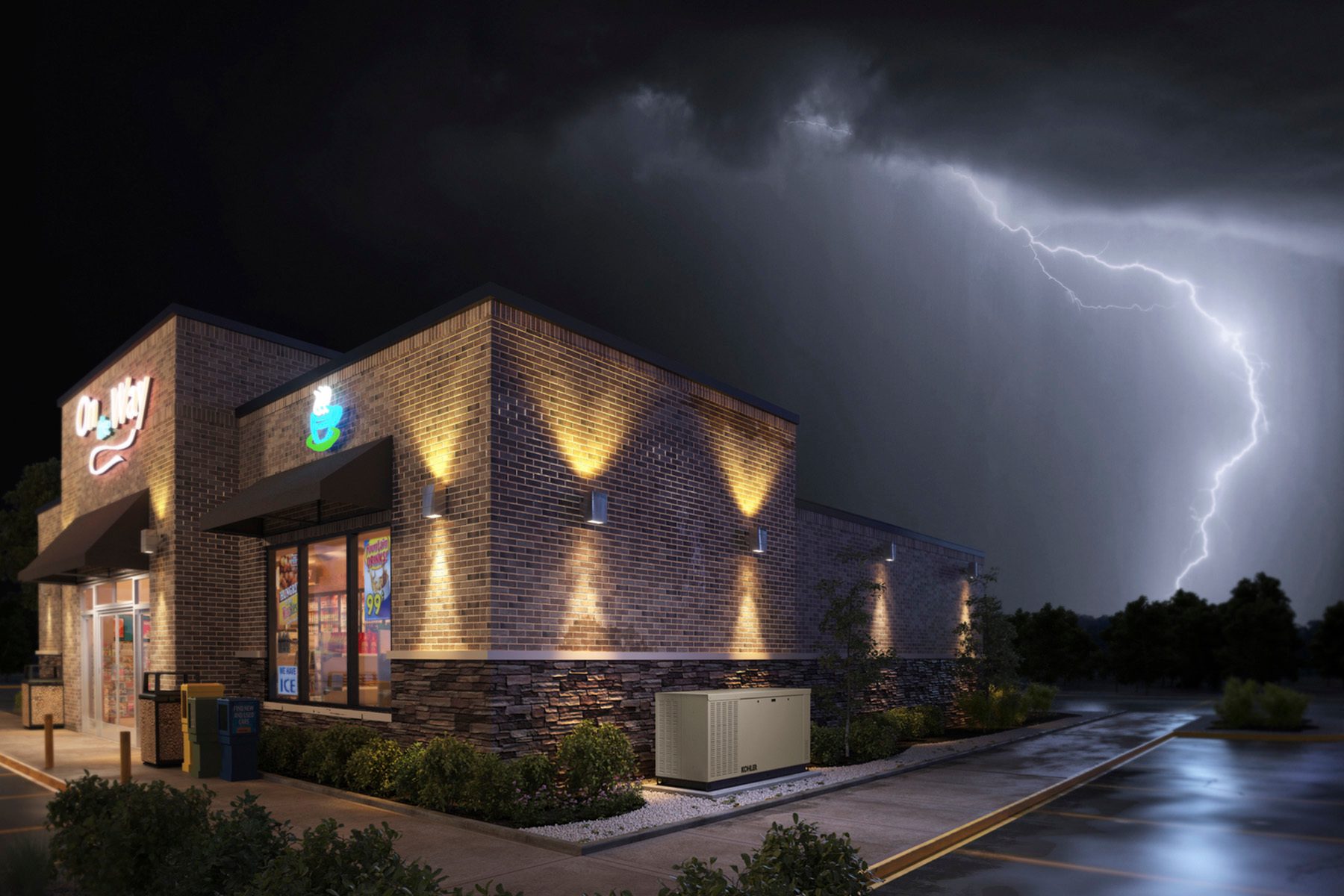
SCROLL
FEATURE
Powering a Backup Generator with Propane
Propane-powered generators provide reliable, affordable energy with low emissions.

SCROLL
The past few years have presented challenges for building owners and managers when it comes to reliable power — especially in critical facilities, like hospitals, nursing homes, life care facilities, assisted living, prisons, and other emergency response buildings.
Powering critical systems and back-up generators with propane can help maximize efficiency and decrease expenses while also reducing a building’s carbon footprint. Propane generators are ideal for providing supplemental power for a building’s electrical loads when power from the electric grid is interrupted. When it comes to reliable and affordable power, here are a few reasons why building owners and managers should consider propane as part of their clean energy mix.
Propane Offers Reliability
Commercial buildings are required to provide backup power to meet building safety codes. For a business, it can prevent thousands of dollars in losses and help keep the doors open.
Large, sustained power outages have continued over the last two decades according to the U.S. Department of Energy (DOE). In 2021, more than 8.6 million people experienced a power interruption. Severe weather-related problems have driven much of the increase in large outages, as reported by the DOE.
This has created an increased demand for power solutions and is why construction professionals need to be knowledgeable about different energy sources, like propane. Propane doesn’t degrade over time, is portable, and can be stored on-site, so it’s always accessible regardless of severe weather or other power interruptions.
"Renewable propane’s chemical structure and physical properties are the same as conventional propane, which means it can be used for all the same applications without any modifications to engines or equipment. "
A study done by PERC emphasizes the need to accelerate decarbonization today with clean energy sources, like propane, as diesel generators can negate emissions reduction efforts. The analysis, “Power Generation: The Emissions Shifting Problem,” examines recent power generation trends as they relate to power outages.
In response to the increase in outages, there’s been a spike in generator sales and use, especially in storm-wrecked coastal areas, inland tornado alleys, and California. This spike in both sales and use is primarily of diesel-powered power generation solutions, which is creating a bigger emissions problem and degradation of local air quality.
According to PERC’s data, propane can improve local air quality by mitigating nitrogen oxides and particulate matter, both of which are known health hazards. Propane systems also emit significantly low NOx and criteria pollutants.
Renewable propane will offer even cleaner option, as it becomes available.
Propane power generation solutions are already creating opportunities for commercial construction professionals to reduce emissions compared with diesel, but as more renewable propane becomes available, propane solutions will become even cleaner.
As states and municipalities adopt more stringent emissions standards, the value of clean propane will become more important than ever. In places like California, the propane industry has pledged 100% renewable sourcing by 2030. In PERC’s analysis, it found that renewable propane can lead to at least a 50%-70% reduction in life cycle carbon dioxide (CO2) emissions compared to conventional diesel and can accelerate deep decarbonization. It also found that blends of conventional and renewable propane is an additional practical solutions for accelerating decarbonization.
Renewable propane’s chemical structure and physical properties are the same as conventional propane, which means it can be used for all the same applications without any modifications to engines or equipment.
When it comes to reliable, affordable, and sustainable energy for backup power, building owners and managers can count on propane to help critical facilities offer nonstop operations.

Jim Bunsey
Jim Bunsey is the director of commercial business development at the Propane Education & Research Council (PERC). He can be reached at jim.bunsey@propane.com.
Image courtesy of PERC